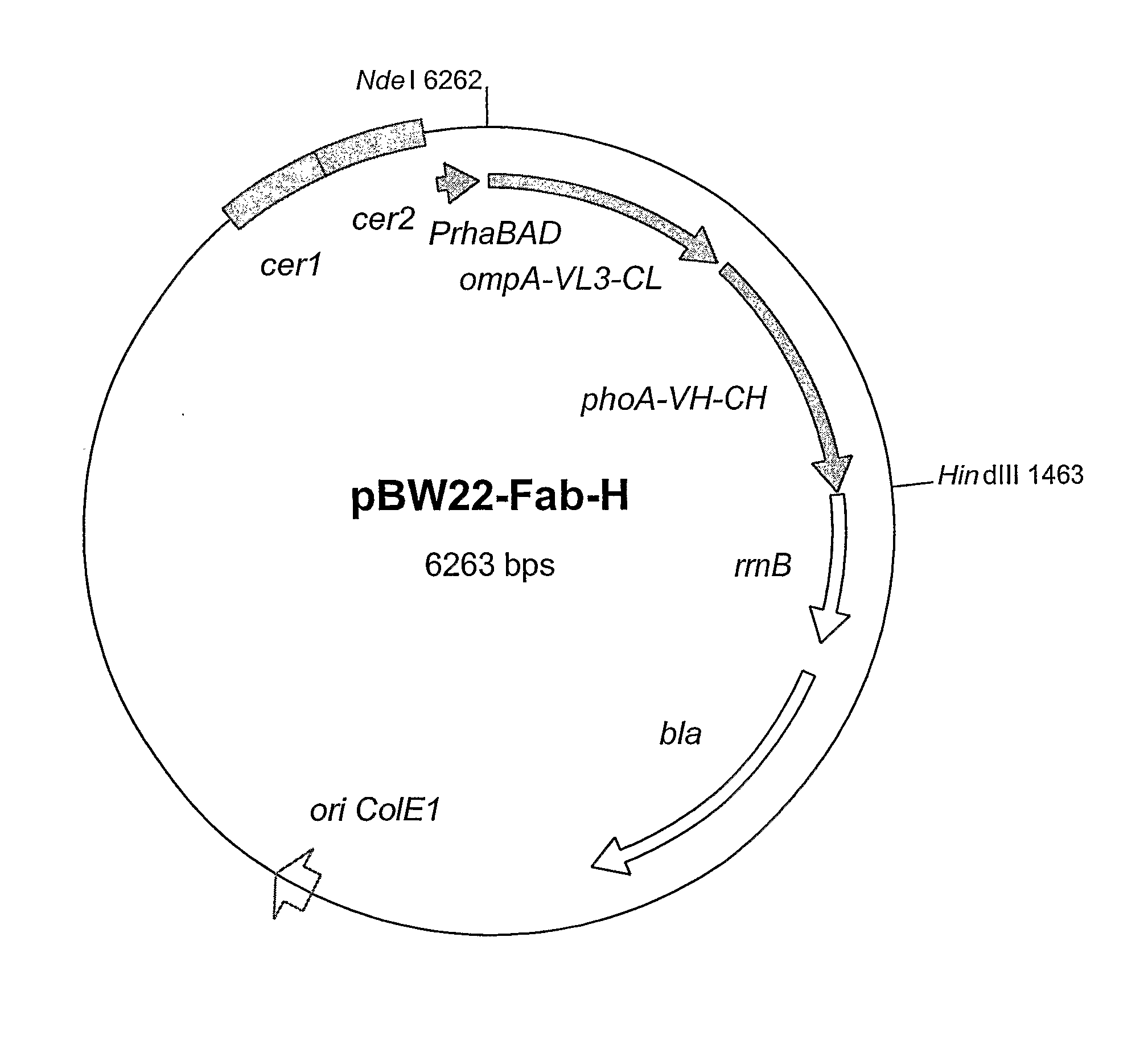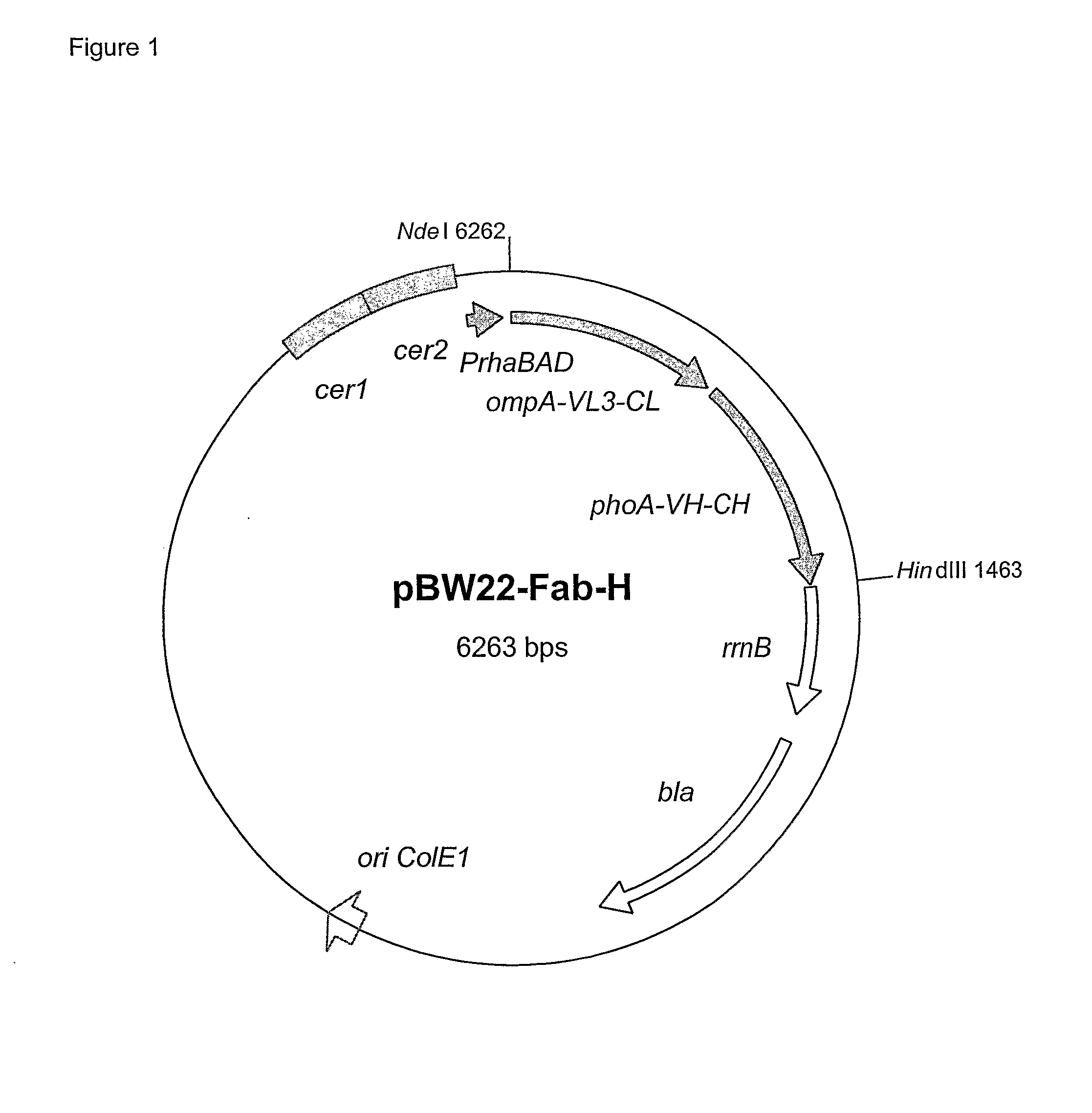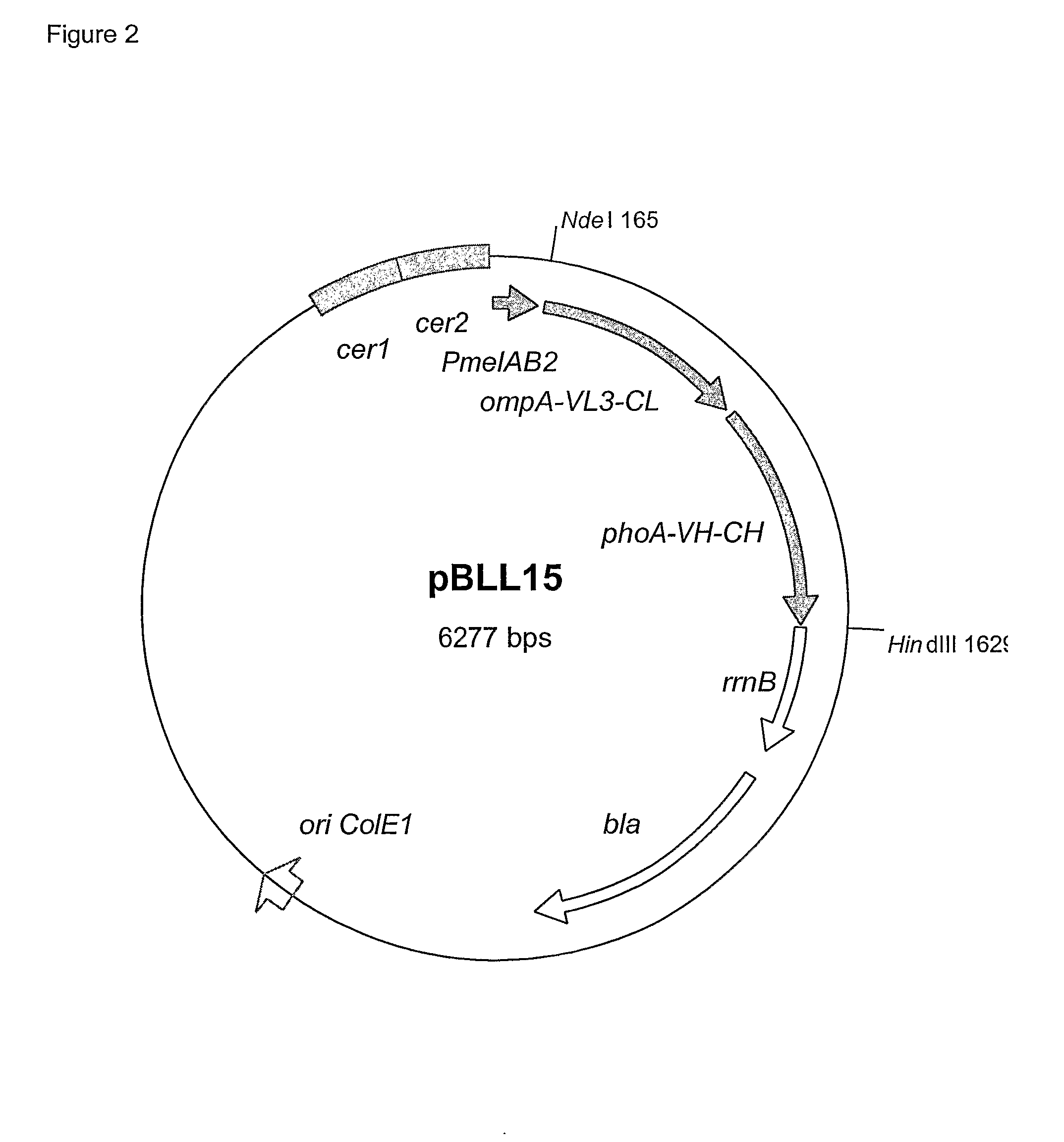Rhamnose Promoter Expression System
- Summary
- Abstract
- Description
- Claims
- Application Information
AI Technical Summary
Benefits of technology
Problems solved by technology
Method used
Image
Examples
example 1
[0112]Construction of Expression Plasmids with Positively Regulated Promoters
[0113]The Escherichia coli W3110 genome was scanned for positively regulated operons. Based on the genomic data which are available on the KEGG database (Kyoto Encyclopedia of Genes and Genomes, http: / / www.genome.ad.jp / kegg / kegg2.html) positively regulated catabolic promoters were identified and analysed for their use in expression plasmids. The promoters should be tightly regulated and induced by a cheap and non-toxic and therefore industrially useful compound. The following promoters of different positively regulated catabolic operons were chosen[0114]prp promoter (propionate inducible)[0115]gutA promoter (glucitol inducible)[0116]melAB2 promoter (melibiose inducible)
[0117]The precise DNA fragments which contain the promoter elements were selected based on the available information on the corresponding regulator binding sites. Chromosomal DNA of Escherichia coli was isolated by the method of Pitcher et al...
example 2
[0120]Construction of Fab Fragment Expression Plasmids
[0121]As an alternative to an IPTG-inducible lac promoter (plasmid pMx9-HuCAL-Fab-H, Knappik et al., 1985, Gene 33, 103-119), different positively regulated expression systems were analysed for their capacity to produce Fab-H antibody fragments. The Fab-H fragment was amplified out of plasmid pMx9-HuCAL-Fab-H by PCR using the primers Fab-5 (5′-aaa cat atg aaa aag aca gct atc-3′) and Fab-3 (5′-aaa aag ctt tta tca gct ttt cgg ttc-3′). The PCR-fragment was cut with NdeI and HindIII and inserted into NdeI / HindIII-cut pBW22 (Volff et al., 1996, Mol. Microbiol. 21, 1037-1047) to create plasmid pBW22-Fab-H (FIG. 1) containing the rhamnose inducible rhaBAD promoter (SEQ ID NO. 1). The same PCR-fragment was inserted into the different expression plasmids with inducible promoters. The resulting Fab-H containing (putative) expression plasmids are pBLL13 containing the prp promoter, pBLL14 containing the gutA promoter and pBLL15 containing t...
example 3
[0122]Expression of Fab Fragment
[0123]Strain W3110 (DSM 5911, Deutsche Sammlung von Mikroorganismen und Zellkulturen GmbH, Braunschweig, Germany) was transformed with the different expression plasmids. The plasmids were isolated from clones which resulted from the different transformations and checked via restriction analysis. Except plasmid pBLL14 all plasmids had the expected restriction pattern. The re-isolated plasmid pBLL14 showed an altered size and restriction pattern which was suggested to be due to recombination events. Therefore strain W3110 (pBLL14) was not tested in the following assays. The remaining strains were tested for their ability to secrete actively folded Fab-H antibody fragments. This productivity test was performed as described in example 4. The following inducers were added in a concentration of 0.2%
pBW22-Fab-HL(+)-Rhamnose monohydratepBLL13Sodium propionatepBLL15D(+)-Melibiose monohydrateD(+)-Raffinose monohydrateD(+)-Galactose
[0124]The results from the dot...
PUM
| Property | Measurement | Unit |
|---|---|---|
| Nucleic acid sequence | aaaaa | aaaaa |
Abstract
Description
Claims
Application Information
 Login to View More
Login to View More - R&D Engineer
- R&D Manager
- IP Professional
- Industry Leading Data Capabilities
- Powerful AI technology
- Patent DNA Extraction
Browse by: Latest US Patents, China's latest patents, Technical Efficacy Thesaurus, Application Domain, Technology Topic, Popular Technical Reports.
© 2024 PatSnap. All rights reserved.Legal|Privacy policy|Modern Slavery Act Transparency Statement|Sitemap|About US| Contact US: help@patsnap.com










